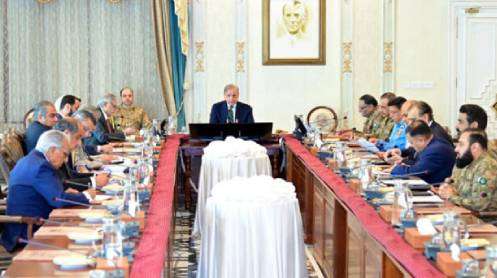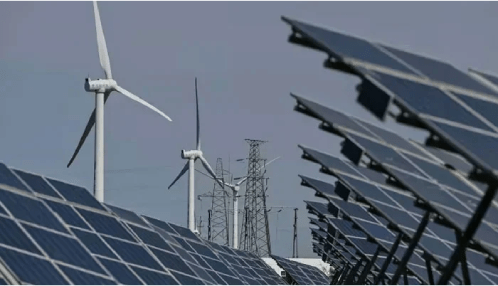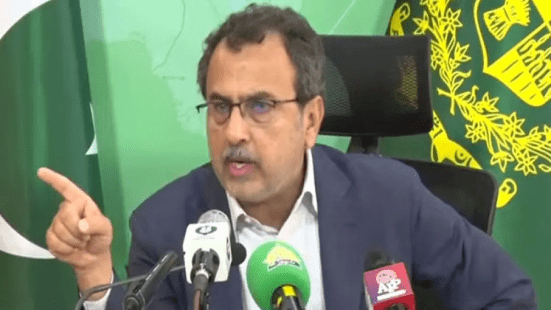Climate campaigners dismiss government argument that controversial move will improve food security
Rishi Sunak plans to restrict the installation of solar panels on swathes of British farmland, which climate campaigners say will raise bills and put the UK’s energy security at risk.
Last year, then prime minister Liz Truss attempted to block solar from most of England’s farmland. The plans were deeply controversial and unpopular, and were dropped when she left office.
However, solar panels in the countryside are disliked by many rural Conservative MPs, and the Observer can reveal that Sunak and environment secretary Thérèse Coffey have revived plans to put new restrictions on this form of cheap renewable energy.
This is the latest weakening of green policies before the general election, which started when the Conservatives won the Uxbridge byelection, a result widely attributed to anger at Labour mayor Sadiq Khan’s ultra low emissions zone.
Sunak recently announced that the 2030 phase-out of new petrol and diesel cars will be pushed back to 2035, as well as weakening the 2035 gas boiler phase-out, confirming it will apply to far fewer homes. The government also plans to scrap pollution rules for housebuilders in sensitive areas, where they are currently not able to add to sewage pollution without paying to improve nearby wetlands.
It has also faced criticism for its record on renewables, with its stance on onshore wind referred to by industry as an effective block, and the recent government renewable energy auction failing to sign up any offshore wind.
Sunak will further dilute green policies, say campaigners, by giving new powers to planning officials in the National Planning Policy Framework (NPPF). These would allow officials to block any solar project that can be argued to “put food security at risk” – that is, anywhere food is grown.
Ministers are understood to believe that food security should be on par with energy security and will use recent climate breakdown-related food shortages in Europe and the war in Ukraine as justification for the change.
The framework amendment to the NPPF was drafted by Greg Smith, the MP for Buckingham, who has long campaigned against solar panels on farmland. He said: “This is a clear, straightforward protection that planning authorities up and down the land can use to say this development on this farmland isn’t going to hit our food security in this area, or this one over here is and therefore use that as a good reason to turn down applications.”
Coffey confirmed the NPPF will be coming out later this year and that “the first purpose [of farmland] must have to be about food production”.
Energy experts have strongly criticised the plans. Lydia Collas, senior policy analyst at Green Alliance, said: “Solar energy will help us move away from polluting fossil fuels, and in the long term protect UK farming from climate breakdown. Restricting ground-mounted solar would be gravely short-sighted. ”skip past newsletter promotion
Sign up to Down to Earth
Free weekly newsletter
The planet’s most important stories. Get all the week’s environment news – the good, the bad and the essential
after newsletter promotion
Alethea Warrington, senior campaigner at climate charity Possible, added: “It is mindblowing that as the UK faces yet another winter of unaffordable energy costs caused by reliance on dirty gas, the government would make it still more difficult to build the clean, cheap energy we desperately need.
“The idea that solar power could interfere with the UK’s food security is utterly detached from reality. Solar power generated over 8% of all our electricity this spring, but takes up less land than golf courses. This is part of an abysmal streak of energy policy from the government, including failing to properly unblock onshore wind, failing to get any new offshore wind, and trying to press ahead with incredibly dangerous new oil drilling.”
A Department for Levelling up, Housing and Communities spokesperson said the NPPF consultation aimed to prioritise food production but no decision on the wording had been made. “We received thousands of replies to our consultation and are considering these before responding.”
This article was amended on 8 October 2023. Greg Smith is the MP for Buckingham, not Buckinghamshire as an earlier version said.







